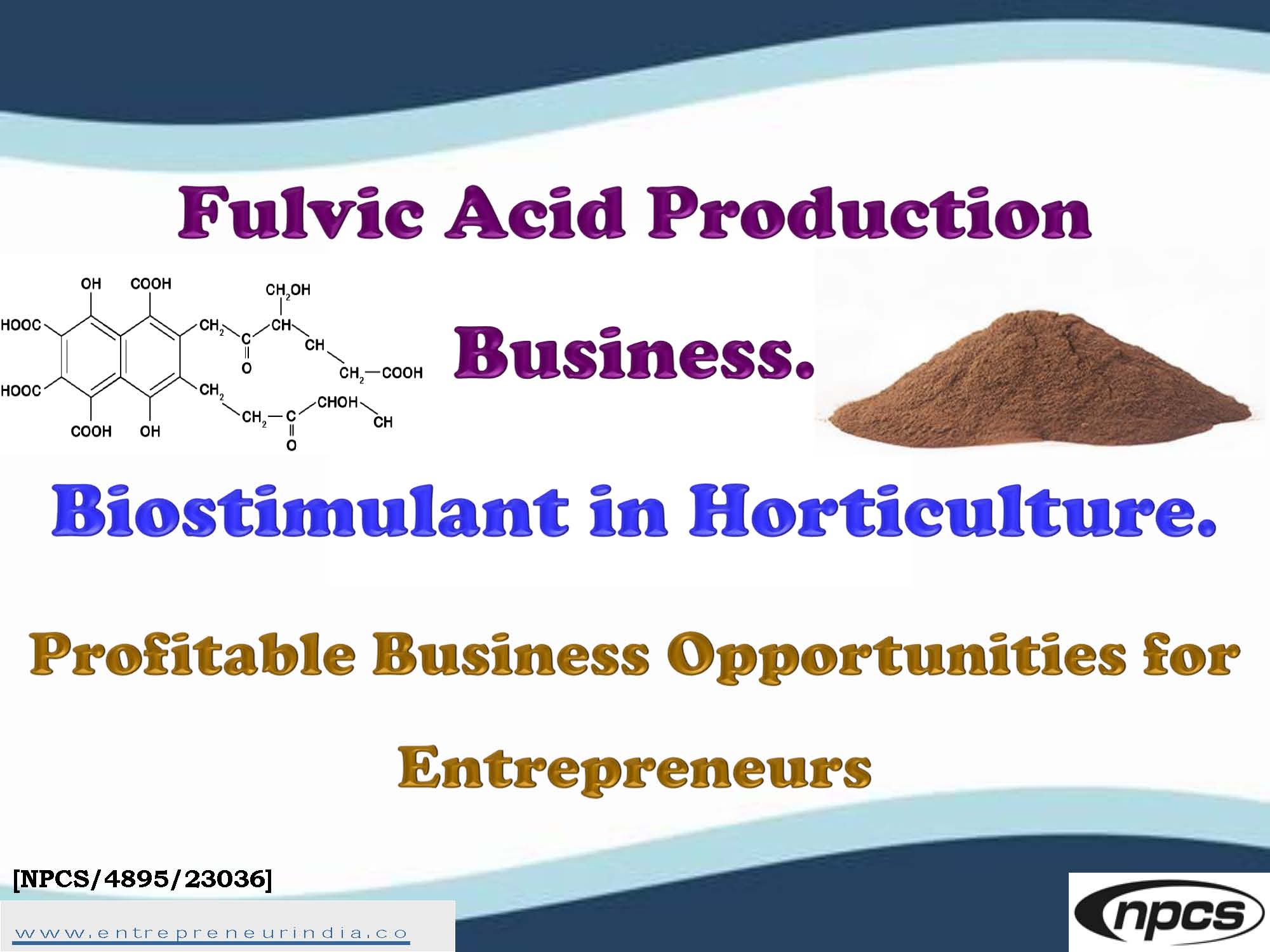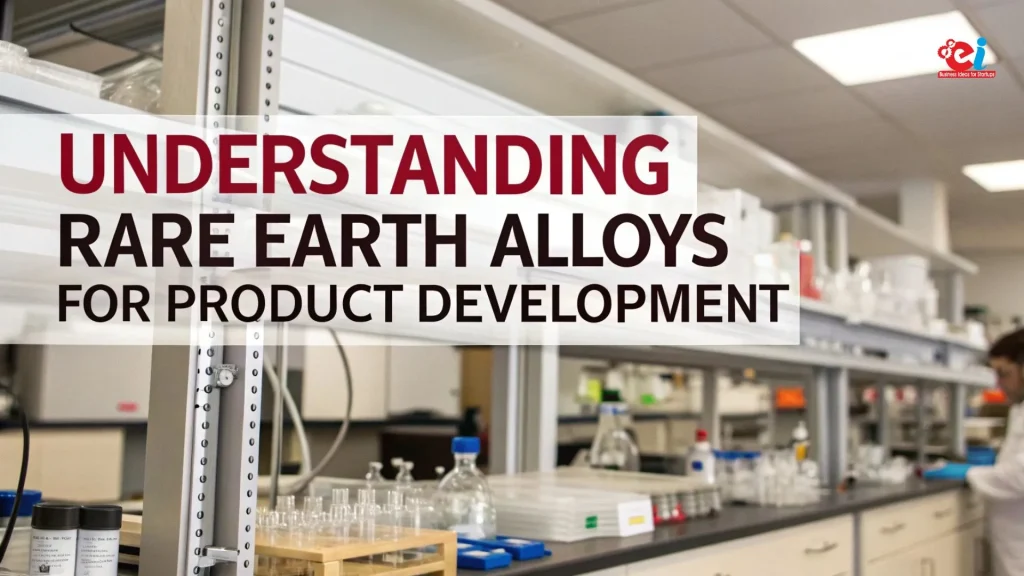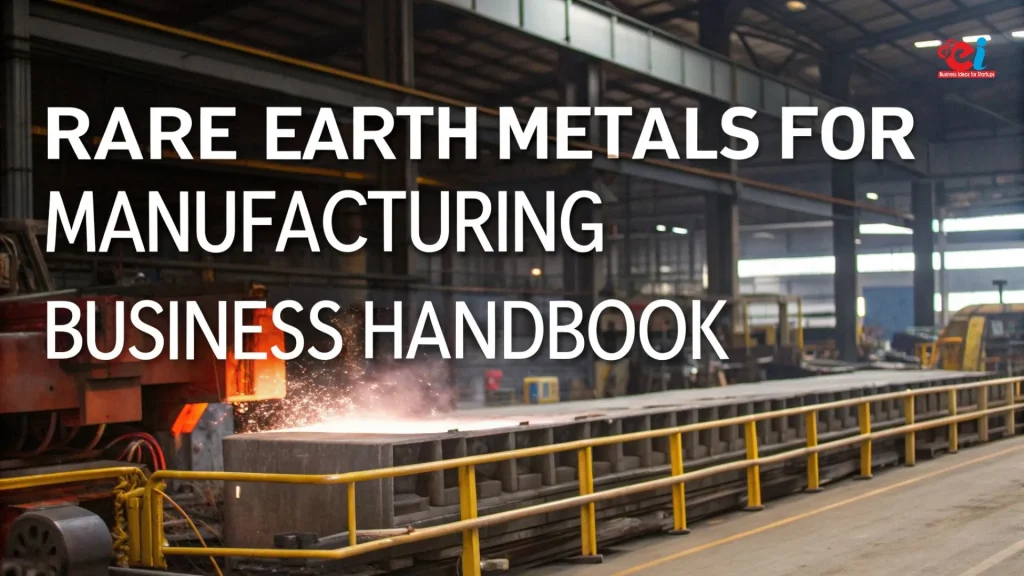
The Fulvic Acid Production Business is becoming a high-growth opportunity in the agricultural and health supplement sectors. Fulvic acid, a naturally occurring organic acid derived from humus and decomposed plant matter, plays a vital role in soil fertility and nutrient absorption in plants. It also has expanding applications in the nutraceutical, pharmaceutical, and cosmetics industries. Entrepreneurs looking for an environmentally sustainable, scientifically backed, and profit-generating venture are increasingly exploring Fulvic Acid Production Business opportunities to meet domestic and international demand.
Market Overview and Demand
The global market for fulvic acid is steadily growing due to increased awareness of organic farming, sustainable agriculture, and soil health management. Farmers and agricultural input manufacturers are transitioning from chemical-heavy solutions to organic and bio-based fertilizers and soil enhancers. In this shift, Fulvic Acid Production Business has gained attention as it offers a natural, efficient, and eco-friendly soil conditioner.
Additionally, the supplement and personal care industries use fulvic acid in detox formulas, energy boosters, skincare, and immune-enhancing products. This cross-sector application has driven market demand beyond just agriculture, providing an excellent foundation for business expansion.
Benefits of Fulvic Acid
The growth of the Fulvic Acid Production Business is driven by the compound’s powerful benefits. Fulvic acid improves the uptake of nutrients in plants and enhances soil microbial activity, which is essential for sustainable agriculture. It binds with minerals and trace elements, making them more bioavailable to crops and plants.
In the health and wellness sector, fulvic acid is praised for its ability to detoxify the body, improve nutrient absorption, and act as an antioxidant. With this dual demand from two major markets, the profitability and scalability of Fulvic Acid Production Business are significant.
Sources of Fulvic Acid and Raw Materials
Fulvic acid is derived from organic sources such as:
-
Lignite or leonardite (oxidized lignite)
-
Peat moss
-
Compost
-
Humic shale
-
Agricultural organic waste
Among these, leonardite is the most preferred due to its high concentration of humic and fulvic substances. In most Fulvic Acid Production Business units, raw materials are treated with acids, alkalis, or microbial fermentation processes to isolate fulvic acid from other components.
Other inputs include:
-
Caustic soda or potassium hydroxide (for alkaline extraction)
-
Sulfuric or hydrochloric acid (for neutralization)
-
Water (filtered, demineralized)
-
Stabilizers or preservatives (for liquid formulations)
-
Packaging materials like HDPE drums, bottles, or sachets
Fulvic Acid Extraction Process
The production process in a Fulvic Acid Production Business generally includes the following steps:
-
Raw Material Sourcing and Drying: Leonardite or other raw organic material is dried and crushed.
-
Extraction: An alkaline solution is added to extract fulvic and humic acids through agitation and heat.
-
Filtration: The solution is filtered to remove insoluble residues and humin.
-
Separation: Acidification helps separate fulvic acid from humic acid (as fulvic remains soluble at low pH).
-
Neutralization and Concentration: The extract is neutralized and concentrated using evaporation or drying.
-
Formulation: The final product can be liquid, powder, or granule, depending on end use.
-
Packaging: Products are packed in suitable containers to ensure stability and shelf life.
The production can be batch-wise or continuous, depending on the scale of operations.
Types of Fulvic Acid Products
The Fulvic Acid Production Business can focus on multiple product formats depending on market segment:
-
Liquid Fulvic Acid: Used in drip irrigation, foliar sprays, and as input for fertilizer blends.
-
Powder Fulvic Acid: Easy to store and transport; used in agriculture and animal feed.
-
Granular Fulvic Acid: Ideal for soil application and slow-release fertilizers.
-
Fulvic Acid Blends: Combined with humic acid, seaweed extract, or micronutrients for added benefits.
-
Nutraceutical Grade Fulvic Acid: For capsules, tablets, or drinks in the health sector.
Manufacturers often choose product forms based on their targeted customer base, whether it’s farmers, agrochemical companies, or supplement brands.
Machinery and Setup
To establish a Fulvic Acid Production Business, you will need:
-
Raw material grinder/crusher
-
Agitation tanks with heating system
-
Alkaline and acid dosing tanks
-
Filtration system (plate filters, pressure filters)
-
Evaporators or spray dryers (for powder form)
-
Liquid filling machine (for bottling)
-
Weighing and packaging machine
-
Quality testing lab setup
-
Storage tanks and utilities (water treatment, waste management)
A medium-scale production unit can be set up in around 2,000 to 4,000 sq. ft. of industrial space. Larger setups may require more automated systems and inventory storage facilities.
Investment and Profit Margin
The total investment in a Fulvic Acid Production Business depends on the scale, automation, and end products. On average:
-
Small-scale unit: ?15–25 lakhs
-
Medium-scale unit: ?40–60 lakhs
-
Large-scale setup: ?1 crore and above
Gross profit margins in fulvic acid products typically range from 30% to 50%, depending on product purity, packaging, and branding. Export-grade or nutraceutical-grade fulvic acid commands even higher margins.
Legal and Regulatory Requirements
To launch a legally compliant Fulvic Acid Production Business, you need:
-
Fertilizer license (FCO registration) – if marketing as a bio-fertilizer or soil conditioner
-
FSSAI license – if producing health supplements
-
MSME/Udyam registration
-
GST registration
-
Factory license and labor laws compliance
-
Pollution control clearance
-
ISO certification or Organic certification – helpful for exports
For supplement-grade fulvic acid, additional safety, toxicity, and purity tests may be required.
Marketing and Sales Strategy
Your Fulvic Acid Production Business can market to various segments:
-
Agriculture retailers and distributors
-
Organic farming cooperatives
-
Fertilizer manufacturing companies
-
Exporters and wholesalers in the Middle East, Africa, and Southeast Asia
-
Online marketplaces for gardening supplies and soil enhancers
-
Health product brands and supplement manufacturers
Brand positioning around “organic”, “eco-friendly”, “non-toxic”, and “multi-purpose” adds great value. A robust digital presence, including SEO, B2B portals, and social media campaigns, can generate strong leads.
Government Support and Subsidies
The Government of India and various state departments support Fulvic Acid Production Business under:
-
National Mission for Sustainable Agriculture (NMSA)
-
Paramparagat Krishi Vikas Yojana (PKVY)
-
MSME Cluster Development Programs
-
Subsidized loans via NABARD and SIDBI
-
Agri-export incentives and schemes for organic products
These programs help new entrants with funding, skill training, and marketing exposure.
Conclusion
The Fulvic Acid Production Business is a highly viable venture for those interested in green technologies, organic inputs, and future-focused industries. With its dual applications in agriculture and health, fulvic acid production offers multiple income streams and scalable opportunities. Minimal raw material dependency, government support, and rising global demand make it an ideal business model for entrepreneurs, SMEs, and even larger manufacturing groups.
If planned properly—with focus on quality, compliance, and branding—the Fulvic Acid Production Business can establish itself as a strong player in the sustainable agriculture and wellness product ecosystem.
Niir Project Consultancy Services
An ISO 9001:2015 Company
106-E, Kamla Nagar, Opp. Spark Mall,
New Delhi-110007, India.
Email: npcs.ei@gmail.com , info@entrepreneurindia.co
Tel: +91-11-23843955, 23845654, 23845886, 8800733955
Mobile: +91-9811043595
Website: www.entrepreneurindia.co , www.niir.org





